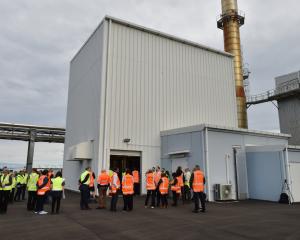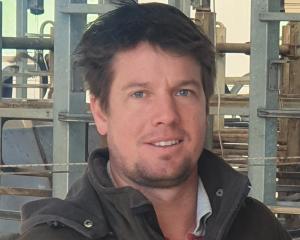
The figures, obtained by the Otago Daily Times, showed building consent activity dropped in Dunedin, the Lakes district, Central Otago and Waitaki during the past year, fuelled by fears of the global economic meltdown.
Dunedin builders spoken to said there had been a noticeable drop-off in work, particularly for residential projects, during 2008, while one Queenstown builder said some others working in the resort were opting to relocate to the North Island in search of work.
Dunedin City Council figures showed the total number of building consent applications received declined from 3555 in 2007 to 3277 last year, while the total estimated value of projects requiring consents went down from $248 million in 2007 to $234 million last year.
The number of consent applications received during November and December last year - the start of the summer sea-son - was "about as low as it's ever been", dropping 20% from 589 in 2007 to 469 last year, council chief building control officer Neil McLeod said.
Lakes Environmental staff - responsible for Queenstown, Arrowtown, Wanaka and other Lakes District centres - also reported a decline in consent activity in recent months, with received applications dropping from 245 in November-December 2007 to 190 in the same period last year.
Annual consent figures, and their estimated value, were not available.
Central Otago District Council figures showed consents down from 990 in 2007 to 903 last year, while the estimated total value dropped from $103 million to $100 million.
Consents from the Waitaki District Council dropped 9.5%, from 893 in 2007 to 803 last year, and the estimated value of projects from $60 million in 2007 to $53 million last year, council regulatory services manager Paul Arnold said.
New national figures for November, released by Statistics New Zealand yesterday, also highlighted the decline in consents issued.
For the year ended November 2008, the authorised number of new housing units (including apartments) fell 26%, to 19,068 units, while the value of consents issued for residential buildings fell $1462 million (19%).
It was the first time the new housing units figure had fallen below 20,000 since the April 1994 year, although the value of non-residential buildings was up, by $272 million (or 6.5%), in the same period.
Mr McLeod said the drop in Dunedin would have an impact on the council's books, with a corresponding drop in building consent fees paid to council, but details were not yet available.
However, he cautioned against reading too much into the figures, saying the holiday period was typically quiet, with January the slowest month, and figures could easily be distorted by large projects requiring multiple consents or with a large pricetag attached.
He was reluctant to comment when asked if the figures could reflect the credit crunch, saying he believed builders, architects and others involved in the industry appeared to have plenty of forward work.
However, James Crooks Building Ltd owner, James Crooks of Dunedin, said while commercial projects were still plentiful, residential work had "certainly quietened down a bit".
His company, which employed six other full-time builders, worked across several sectors and had enough forward work planned, but he believed other firms could be feeling the pinch.
"Instead of having a year's work in front of them, they only have a month or two," he said.
He blamed the slump on the economic situation and the decline in housing prices, which made buying more attractive and building less so.
However, Dunedin's larger architect firms were "relatively insulated" from the slowdown, Parker Warburton director Simon Parker said.
While smaller firms might be more vulnerable to the industry's "ups and downs", larger firms had enough momentum - helped by projects such as the DCC's $32 million Wall Street shopping mall - to see them through, he said.
More projects, including the planned $188 million Otago Stadium and the possibility of a new Otago Regional Council waterfront office, were also on the horizon, which could provide a further boost, he said.











